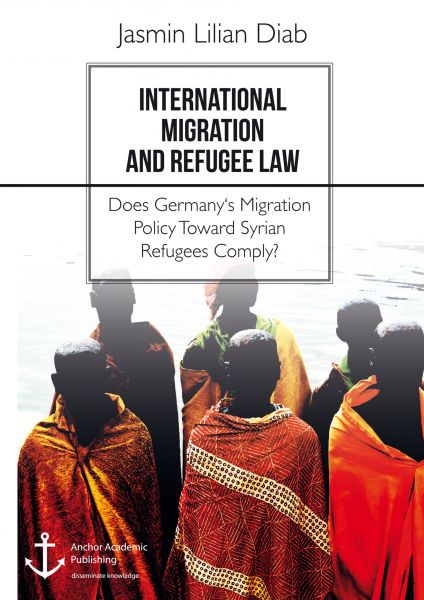International Migration and Refugee Law. Does Germany's Migration Policy Toward Syrian Refugees Comp
Germany will spend around $6.6 billion to cope with an estimated 800,000 refugees expected to have entered the country in the year 2016; this reality indeed extending further into 2017. Despite this overwhelming number of people entering the country, Chancellor Angela Merkel stated that there is “no legal limit to the number of asylum seekers Germany will take in in the coming years.” The announcement by Merkel's coalition government arrived following Germany and Austria opening their borders to the large numbers of refugees making their way north and west from the Middle East, Africa and elsewhere. In particular, this statement came after the Syrian refugee crisis created the biggest refugee crisis the world has seen since the Second World War.
Germany is seen as the immigration hub of Europe. It also happens to be the second most popular destination for immigrants after the United States of America. Germany is also the country in Europe with the highest numbers of foreign nationals to date. Germany established a new immigration law in 2005 was born out of a realization that it was coming to terms with a demographic crisis stemming from an ageing population and further complimented by a sharp decline national birth rates. In foresight, and within this unfortunate context, migration was seen by much of the German political class as an economic necessity, and the answer to the German economic and demographic time bomb.
Between the years 2009 and 2014, annual net migration in Germany rose from 100,000 to 580,000 individuals. Moreover, the inflow of foreign nationals increased from 266,000 to 790,000 individuals. As of January 2015, approximately 10% of residents in Germany were foreign nationals, with around 12% born outside the country. Naturally, these figures have all risen significantly following Merkel’s decision to allow what has reached one million refugees and migrants into Germany across 2016 and moving into 2017. Moving from this reality, the research will focus on the importance of the compliance of Germany’s migration policy with International Refugee and Migration Law, as it is crucial for the country’s survivability and move forward throughout this phase of its history. The importance of the research lies in whether or not Germany’s migration policy towards the Syrian Refugees in particular complies with its duties toward international law embodied in the treaties and conventions it has committed to.
Versandkostenfreie Lieferung! (eBook-Download)
Als Sofort-Download verfügbar
- Artikel-Nr.: SW9783960676515
- Artikelnummer SW9783960676515
-
Autor
Jasmin Lilian Diab
- Verlag Anchor Academic Publishing
- Seitenzahl 135
- Veröffentlichung 12.06.2017
- ISBN 9783960676515

